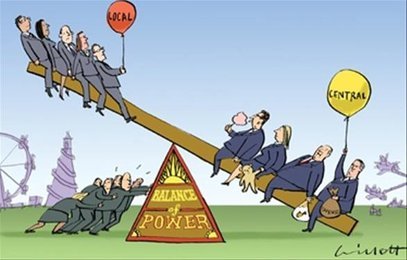If you've ever come across the word "blockchain", it's undoubtedly preceded the hottest six-syllable buzzword of the tech world: decentralization. But what is it, exactly?
Initial Coin Offerings have arisen as a natural succession to crowd funding, representing a transfer of wealth on a global scale in which any individual with a wi-fi signal and a brain can participate.
Decentralization represents the transfer of authority and trust for this brave new economy to exist.
Below I've listed, simplified and provided an example of the three models of decentralization Vitalik Buterin outlines in his essay, The Meaning of Decentralization:
1. Architectural Decentralization:
The network does not rely on a single piece of hardware.Within a blockchain-based system, computational power is derived from a network of servers, rather than one. Thus, if one server goes down, the network still functions.
Think of an elevator shaft. It is supported by multiple cables so that if one breaks, the shaft is supported and its passengers don’t plummet twenty stories.
Real world examples that demonstrate architectural decentralization include: Amazon Web Services, military hardware, aviation technology.

2. Political Decentralization
A system does not rely on a single person or group. This is where humans come into play.- Think of each citizen having a direct say in government policy, rather than having to rely on layers of representatives and congressmen to convey their plea.

3. Logical Centralization
Don't let the name confuse you. This means that an entity or system is able to evolve without a central authority, as one unit.Buterin brilliantly cites the English language as an example of logical centralization. It is a globally agreed upon mode of communication - and if you deviate from the agreed upon rules, you’re going to have a tough time getting what you want.
Example: Bob wants to order a small coffee. He says to the barista “I’d like a a lorem ipsum please.”
No central authority is required to rule that lorem ipsum is not English for “small coffee”. It is universally understood Bob is speaking gibberish, not English.


In conclusion:
The term "decentralization" has several different meanings depending on the application or theory's architectural, logical, or political implications. Hopefully this post has decycphered some of the meaning within Buterin's much lengthier original essay on the matter.Blockchains are politically decentralized (no one controls them) and architecturally decentralized (no infrastructural central point of failure) but they are logically centralized (there is one commonly agreed state and the system behaves like a single computer).
Congratulations @sophiagavrila! You received a personal award!
You can view your badges on your Steem Board and compare to others on the Steem Ranking
Do not miss the last post from @steemitboard:
Vote for @Steemitboard as a witness to get one more award and increased upvotes!
Congratulations @sophiagavrila! You received a personal award!
You can view your badges on your Steem Board and compare to others on the Steem Ranking
Do not miss the last post from @steemitboard:
Vote for @Steemitboard as a witness to get one more award and increased upvotes!